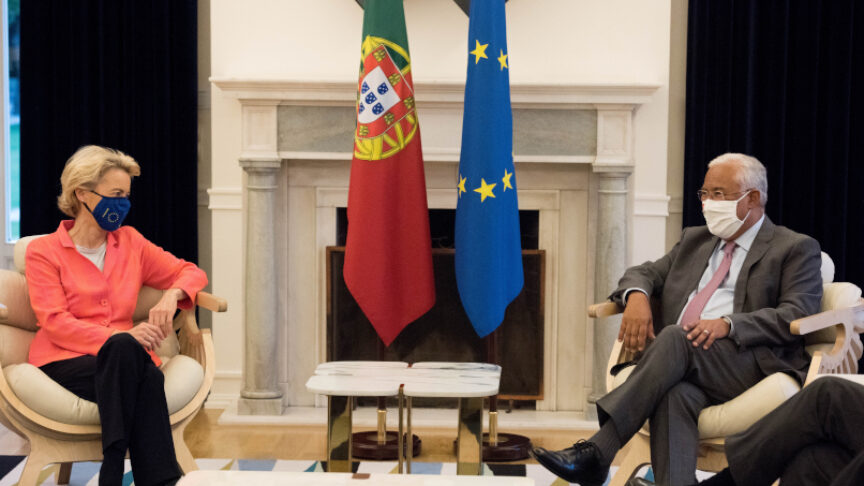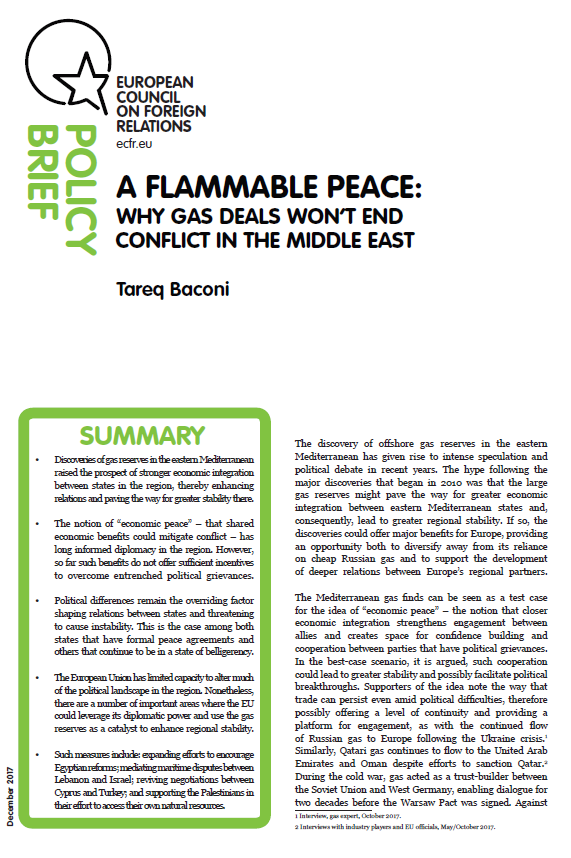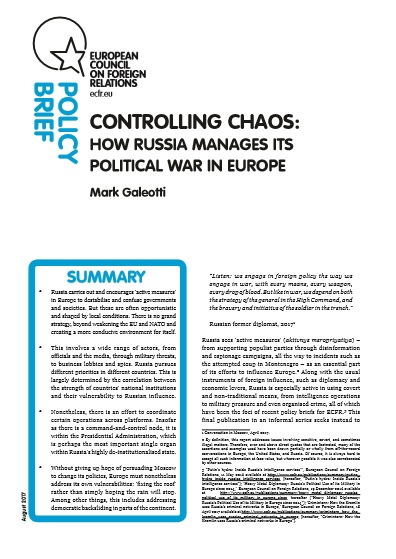
Crisis presidency: How Portuguese leadership can guide the EU into the post-covid era
The Portuguese EU presidency should handle issues in line with European voters’ perceptions of the new reality created by the coronavirus

The Portuguese EU presidency should handle issues in line with European voters’ perceptions of the new reality created by the coronavirus
Turmoil in the Middle East and north Africa directly affects Europeans. Yet their influence in the region has never been weaker. This project maps Europe’s role across the Middle East and north Africa, making the case that Europeans can do more to leverage their influence in pursuit of core interests
EU member states have failed to come up with a coherent policy on how to handle the hundreds of their citizens having travelled to join ISIS in Syria
Rountable discussion on european energy strategy and the role this plays in transatlantic relations. This event is in cooperation with the Atlantic Council and the Aspen Institute Germany.
Summary With anti-Europeans on their way to winning more than one-third of seats in the next European Parliament, the stakes in the May 2019 election…
Introduction As the European Union strives to stem the flow of migrants across the Mediterranean, its policymakers have repeatedly identified North Africa as key to…
Europeans remain unwilling to renew their thinking on nuclear deterrence, despite growing strategic instability. Their stated goal of “strategic autonomy” will remain an empty phrase until they engage seriously on this matter
Introduction For most Europeans, it is now obvious that the foreign policy of US President Donald Trump threatens the global liberal order. Trump’s hostility towards…
Introduction During the cold war, arms control and disarmament agreements helped create a stable equilibrium between NATO and the Warsaw Pact, reducing the…
Introduction The Middle East and North Africa is the most water-scarce region in the world. Nearly two-thirds of the population there are living in areas…

The Portuguese EU presidency should handle issues in line with European voters’ perceptions of the new reality created by the coronavirus
EU member states have failed to come up with a coherent policy on how to handle the hundreds of their citizens having travelled to join ISIS in Syria
Introduction As the European Union strives to stem the flow of migrants across the Mediterranean, its policymakers have repeatedly identified North Africa as key to…
Introduction For most Europeans, it is now obvious that the foreign policy of US President Donald Trump threatens the global liberal order. Trump’s hostility towards…
Introduction During the cold war, arms control and disarmament agreements helped create a stable equilibrium between NATO and the Warsaw Pact, reducing the…
Introduction The Middle East and North Africa is the most water-scarce region in the world. Nearly two-thirds of the population there are living in areas…
Some European leaders see stabilisation of the region – through curbing migration and counter terror threats – as key to the future of the European project
China’s priorities are shifting towards the containment of security threats in its region, and Europe should capitalise on this trend

The discovery of gas reserves in the eastern Mediterranean could create an “economic peace”

Insofar as there is a command-and-control node, it is within the Presidential Administration
Welcome to your summer reading list! No, summer is not over yet, and no, you won’t be tested on these. Here at ECFR we have…
Turmoil in the Middle East and north Africa directly affects Europeans. Yet their influence in the region has never been weaker. This project maps Europe’s role across the Middle East and north Africa, making the case that Europeans can do more to leverage their influence in pursuit of core interests
Summary With anti-Europeans on their way to winning more than one-third of seats in the next European Parliament, the stakes in the May 2019 election…
Europeans remain unwilling to renew their thinking on nuclear deterrence, despite growing strategic instability. Their stated goal of “strategic autonomy” will remain an empty phrase until they engage seriously on this matter
Rountable discussion on european energy strategy and the role this plays in transatlantic relations. This event is in cooperation with the Atlantic Council and the Aspen Institute Germany.